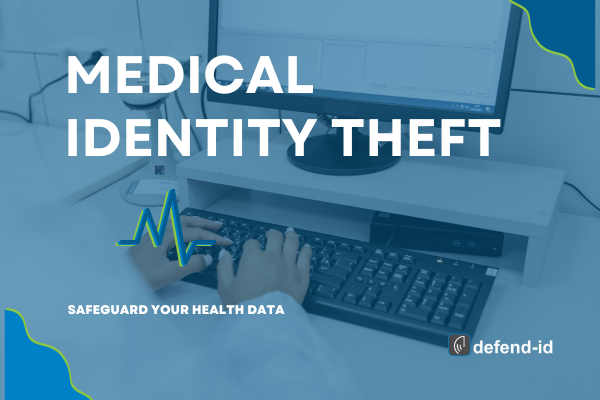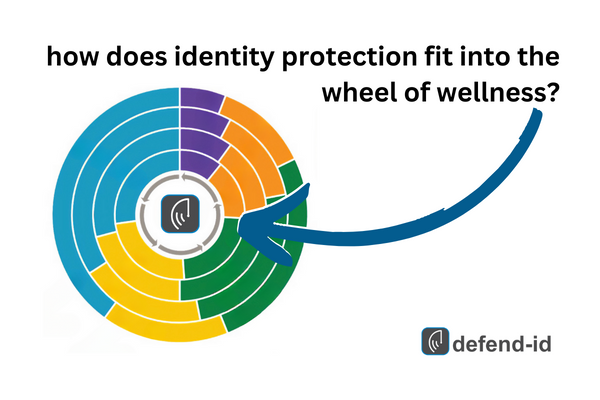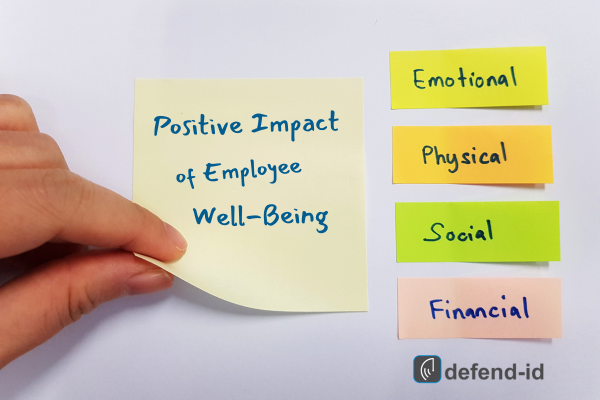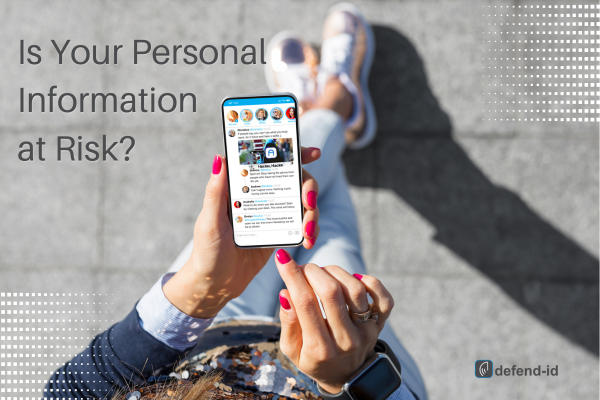
by Brian Thompson | Feb 19, 2025 | healthcare, Identity Theft
Protecting your personal health information is more important than ever. Medical identity theft—when someone uses your health data for fraudulent purposes—can lead to devastating financial losses, compromised care, and long-lasting credit issues. In this article, we explore what medical identity theft is, outline best practices for safeguarding your information, and provide actionable steps you can take if you suspect your data has been compromised.
I. Understanding Medical Identity Theft
What It Is and Its Impact
Medical identity theft occurs when a criminal uses another person’s health information (like your name, Social Security number, or health insurance details) to obtain medical care, submit fraudulent claims, or receive unauthorized prescriptions. Unlike traditional identity theft, this type of fraud affects your finances and ability to access necessary healthcare services. Victims may face billing errors, treatment delays, and damage to their credit scores.
Common Methods of Theft
- Data Breaches: Cyberattacks on hospitals and healthcare providers have led to massive leaks of patient data.
Link: FTC Data Breach Notifications
- Phishing Attacks: Fraudsters send deceptive emails or texts posing as trusted healthcare institutions to trick you into revealing sensitive information.
- Insider Threats: Unsecured patient records and unauthorized access by staff can also result in stolen data.
II. Best Practices for Protecting Your Medical Identity
Secure Your Health Records and Personal Information
- Strong Passwords & Multi-Factor Authentication: Use complex, unique passwords and enable multi-factor authentication for healthcare portals. This extra layer of security ensures that even if your password is compromised, unauthorized access remains unlikely.
- Digital Health Cards & Encrypted Portals: Whenever possible, opt for digital health insurance cards and secure, encrypted patient portals. Many healthcare providers now offer mobile apps for safe access to your records.
Monitor Your Medical and Financial Statements
- Regular Reviews: Make it a habit to review your Explanation of Benefits (EOB) statements and medical bills for any discrepancies or charges you don’t recognize.
- Account Alerts: Set up notifications on your bank and credit accounts to detect suspicious activities early.
Utilize Identity Theft Protection Services
- Credit Freezes & Fraud Alerts: Consider placing a credit freeze with major bureaus (Experian, Equifax, TransUnion) to prevent new fraudulent accounts.
- Professional Monitoring: Identity protection services can continuously monitor your data and alert you if your information is compromised.
Follow HIPAA and Regulatory Guidelines
- Know Your Rights: Familiarize yourself with HIPAA and state-specific regulations regarding medical data. Ask your healthcare provider about their data security measures.
- Secure Data Practices: Ensure that any provider you work with complies with federal and state guidelines.
Educate Yourself and Your Family
- Stay Informed: Cybersecurity threats are ever-evolving. Regularly update yourself on the latest scams and breaches.
- Family Awareness: Encourage your family—especially vulnerable members—to adopt secure practices, like using strong passwords and being cautious about sharing personal data.
III. Tools and Technologies to Combat Medical Identity Theft
Biometric Authentication & Digital Health Records
Modern healthcare providers increasingly use biometrics (such as iris scans and facial recognition) to verify patient identities. These technologies help ensure that only you can access your medical records.
Data Encryption and Secure Storage Solutions
Encryption protects your data in transit and at rest. Secure cloud storage and encrypted electronic health record (EHR) systems significantly reduce the risk of unauthorized access.
Trusted Identity Management Software
Specialized identity management tools help verify identities, monitor for suspicious activity, and provide immediate alerts if unauthorized access is detected.
IV. What to Do If You Suspect Medical Identity Theft
Immediate Steps to Take
- Document Suspicious Activity: Keep detailed records of any unauthorized charges or discrepancies in your medical or financial statements.
- Contact Your Healthcare Provider: Inform your provider about any irregularities in your records so they can verify and secure your information.
Reporting and Recovery
- Report to the FTC: File a report at IdentityTheft.gov to initiate a formal recovery plan.
- Notify Local Law Enforcement: A police report serves as crucial documentation if you need to dispute fraudulent charges.
- Seek Professional Help: Consider using professional identity recovery services for assistance in restoring your information and credit.
FAQ
Q: What is medical identity theft?
A: Medical identity theft occurs when someone uses your personal health information to commit fraud—such as obtaining unauthorized medical services or filing fraudulent insurance claims.
Q: How can I secure my health records?
A: Use strong, unique passwords, enable multi-factor authentication, opt for digital health cards and encrypted portals, and regularly review your medical statements for any discrepancies.
Q: What should I do if I suspect medical identity theft?
A: Document any suspicious activity, contact your healthcare provider, report the issue to the FTC via IdentityTheft.gov, and file a police report. Professional recovery services can also help restore your identity.
Conclusion
Medical identity theft is a serious threat with far-reaching consequences—not just financial, but also in terms of your access to vital healthcare. By securing your digital health records, monitoring your accounts closely, and staying informed about the latest cybersecurity threats, you can significantly reduce your risk. Take proactive steps today: update your passwords, educate your family, and use trusted identity protection services.
Download our free checklist for safeguarding your health data, subscribe to our newsletter for ongoing tips, and share this article with friends and family to help protect their identities in 2025 and beyond.

by Brian Thompson | Feb 21, 2024 | Employee Benefits, healthcare, Identity Theft
Guarding Employee Wellness: Why Identity Theft Protection is a Great Option for Business Owners and HR Leaders
In today’s rapidly evolving work landscape, the separation between professional and personal life is becoming increasingly blurred, especially with the increase in remote working. In this newer working environment, employees crave benefits that cater not only to their physical health but also to their financial and emotional wellness. The LIMRA-EY 2023 Workforce Benefits Study brings to light this shift by introducing the Wheel of Wellness, encompassing five key dimensions of wellness: Physical, Mental, Financial, Societal, and Professional 1.
A novel yet pivotal benefit that aligns with multiple facets of the Wheel of Wellness is Identity Theft Protection. Here’s how it dovetails with the five key dimensions:

- Financial Wellness:
Identity theft is no minor issue; it’s a financial slap in the face. The average loss per person is a staggering $3,500. In the United States, total identity theft losses amount to $10.2 billion 2. Offering identity theft protection is a proactive step towards safeguarding an employee’s financial wellness, and ensuring economic resilience, which is a core part of the financial dimension of wellness.
- Mental Wellness:
The ripple effects of identity theft extend beyond financial loss to mental turmoil. The peace of mind from knowing there’s a safety net can be invaluable in promoting mental wellness among employees 3 4. According to the ITRC study, 75% of respondents showed severe distress stemming from the misuse of their information, leading many to seek professional help to navigate their identity theft ordeal—whether it entailed consulting a doctor for physical symptoms or engaging in mental health counseling.
- Professional Wellness:
The time and focus consumed in resolving identity theft issues can impede professional performance. By offering identity theft protection, employers show a proactive stance in supporting their employees’ career development and performance, aligning with the Professional dimension of wellness.
- Societal and Physical Wellness:
While these dimensions may not seem to have a direct link to identity theft protection, a comprehensive approach to employee wellness fosters a conducive environment for societal engagements and physical wellness.
The Stark Reality
A substantial number of Americans are living on the financial edge. Recent surveys reveal that a third of Americans have $100 or less in their savings account going into 2023 6, and many cannot cover a $1,000 emergency 7. This precarious financial situation underscores the necessity of identity theft protection as a part of employee benefits.
Incorporating Identity Theft Protection acts as a barrier against financial distress. Additionally, it contributes to the mental and professional well-being of employees. This benefit’s ripple effect resonates through the Wheel of Wellness. It creates a holistic protective shield around employees. For business owners or HR leaders, including identity theft protection in your benefits is a forward-thinking step. It nurtures a well-rounded, satisfied, and productive workforce. In a fiercely competitive talent market, offering this comprehensive benefit can bolster your employer brand. It makes you a preferred choice among top talents.
As the terrain of work continues to morph, adapting your benefits package to include identity theft protection is not merely about staying current; it’s about fostering a culture of comprehensive wellness and showing a genuine interest in the multifaceted well-being of your workforce.
Ready to arm your employees against identity theft and enhance their overall wellness? Click here to request a comprehensive Identity Theft Protection Employer Response Plan. Your employees will thank you for it!
Related:

by Brian Thompson | Sep 1, 2023 | Employee Benefits, healthcare, Identity Theft
The Hidden Costs of Identity Theft & Employee mental health, an Urgent Call to HR Professionals
Human Resources (HR) professionals have a lot on their plates—everything from recruitment to performance evaluations. Yet, amidst all the paperwork and planning, the emotional well-being of employees often gets overshadowed. While companies are increasingly focusing on mental wellness—as highlighted in a recent [Business West article]—there’s one area that is often overlooked: the impact of identity theft on an employee’s mental health.
The Emotional Anguish of Identity Theft
Feeling Violated
Picture this: One day, you find out someone else is walking around, pretending to be you. They’re spending your money, ruining your credit, and maybe even endangering your reputation. The emotional trauma goes beyond losing a few bucks. It feels like a violation of your very identity.
Loss of Trust
Having your identity stolen can really mess with your ability to trust others. The invisible walls we put up around ourselves can easily make their way into our work environment, affecting how we interact with colleagues and supervisors. It can even result in reduced team collaboration.
Stress and Anxiety
Imagine living with a cloud of constant worry hanging over you—worry about more identity breaches, fear of financial ruin, and the exhausting rigmarole of restoring your identity. This heightened stress and anxiety are not conducive to a productive work environment.
Shame and Embarrassment
Many victims of identity theft end up blaming themselves. This internalized shame can be paralyzing and may cause them to disengage at work, further exacerbating the problem.
The Ripple Effects on the Workplace
Decline in Work Quality
When someone is emotionally and mentally distressed, their work often suffers. The creativity, focus, and determination needed to perform well can be significantly dulled, leading to missed deadlines and subpar work.
Absenteeism
Victims may need time off to resolve the legal and financial mess created by identity theft. These sudden and frequent absences can disrupt the workflow and set back team projects.
Team Dynamics
The mistrust and anxiety felt by one affected individual can have a domino effect, compromising the dynamics of an entire team and reducing overall productivity.
The Role of HR in Mitigating Emotional Strain
Offer Support
HR can play a pivotal role by providing emotional and logistical support. This can range from offering counseling services to granting flexible work hours for affected employees to resolve the issues.
Educate the Team
Proactive education is key. Inform your team about the risks and signs of identity theft and equip them with tools to protect themselves.
Encourage Open Dialogue
Fostering a work environment where employees feel comfortable sharing their concerns can go a long way. Encourage open conversations about mental health and personal challenges to lift the shroud of stigma.
Identity theft is not just a financial issue. It’s an emotional and mental ordeal that can have a significant impact on workplace performance and well-being. By recognizing and addressing the emotional ramifications, HR professionals can ensure a more secure and nurturing work environment. Ultimately, the investment in employee well-being translates into a more engaged, productive, and successful workforce.
Remember, a happy employee is a productive one, and that productivity drives organizational success. Ignoring the emotional toll of issues like identity theft is no longer an option. It’s time for HR to step in and be the change agents organizations so desperately need when it comes to Identity Theft & Employee Mental Health.
Related Articles:

by Brian Thompson | Jun 14, 2023 | healthcare, Identity Theft
The Positive Impact of Employee Well-Being on Productivity and Performance
In today’s highly competitive business world, companies are searching for ways to boost productivity and performance. However, many employers overlook one crucial factor that can significantly impact their bottom line: employee well-being. Recent studies have shown that employees who feel mentally and physically healthy are more engaged, focused, and productive. Moreover, companies that invest in their employees’ well-being report higher job satisfaction and overall performance. From offering flexible work arrangements, mental health support, financial wellness, and protection programs to promoting physical activity and healthy eating habits, there are countless ways companies can prioritize employee well-being. In this article, we will explore the Positive Impact of Employee Well-Being and share practical tips for creating a workplace culture that supports and encourages a healthy lifestyle.
Understanding the link between employee well-being and productivity
Employee well-being and productivity are closely linked. When employees feel well, they are more likely to be engaged in their work, which lead to increased productivity. Studies have shown that employees who feel mentally and physically healthy are more productive than those who do not. One study found that employees who reported high levels of well-being were almost twice as productive as those who reported low levels of well-being.
Additionally, when employees feel well, they are more likely to be present at work and less likely to take time off due to illness. This leads to increased productivity and less disruption in the workplace.
Overall, there is a clear link between employee well-being and productivity. Prioritizing employee well-being creates a more productive and efficient workplace.
The impact of employee well-being on job satisfaction
Employee well-being also has a significant impact on job satisfaction. Employees are more likely to be satisfied with their job and overall work experience when they feel well, increasing job satisfaction and a higher level of commitment to the company.
Conversely, when employees feel unwell, they are more likely to be dissatisfied with their job and overall work experience, decreasing job satisfaction and increasing turnover.
How employee well-being affects employee Retention
Employee well-being is also closely linked to employee retention. When employees feel well, they are more likely to stay with their current employer. This can lead to increased retention rates and a more stable workforce.
Conversely, when employees do not feel well, they are more likely to look for work elsewhere. This can lead to decreased retention rates and a less stable workforce.
By prioritizing employee well-being, companies can create a more stable and committed workforce.
The Role of Managers in promoting employee Well-being
Managers play a critical role in promoting employee well-being. They are responsible for creating a work environment that supports and encourages employee well-being. This can include offering flexible work arrangements, providing mental health support, promoting physical activity and healthy eating habits, and creating a positive work culture.
Managers can also lead by example. When managers prioritize their well-being, they set an example for their employees to follow. This can create a culture of well-being within the workplace.
Strategies for improving employee well-being
There are countless strategies that companies can use to improve employee well-being. Here are a few examples:
- Offer flexible work arrangements, such as telecommuting or flexible hours.
- Provide mental health support, such as an Employee Assistance Program (EAP).
- Promote physical activity and healthy eating habits; by offering healthy snacks in the workplace or providing discounted gym memberships.
- Create a positive work culture
- Set up a financial wellness and protection program
- include identity theft protection!
Implementing these strategies will create a more supportive and healthy workplace.
The benefits of a workplace wellness program
One effective way to promote employee well-being is through a workplace wellness program. These programs offer a variety of health and wellness services to employees, such as health screenings, fitness classes, and stress management workshops.
Studies have shown that workplace wellness programs can have a significant impact on employee well-being. For example, one study found that employees who participated in a workplace wellness program reported lower levels of stress and higher levels of job satisfaction.
Additionally, workplace wellness programs can also have a positive impact on productivity and performance. By promoting employee well-being, companies can create a more engaged and productive workforce.
Case studies of companies that prioritize employee well-being
Many companies have successfully prioritized employee well-being and have seen positive results. For example, Google offers a wide range of health and wellness services to its employees, including on-site medical care, healthy meals, and fitness classes. As a result, Google has been able to attract and retain top talent and has been consistently ranked as one of the best places to work.
Another example is Patagonia, a clothing company that offers a variety of health and wellness services to its employees, such as on-site childcare and paid time off for volunteering. As a result, Patagonia has a highly committed workforce and has been able to maintain high retention rates.
Measuring the Success of employee well-being Initiatives
To ensure the success of employee well-being initiatives, it is important to measure their impact. This can be done through employee surveys, productivity metrics, and retention rates.
By measuring the success of employee well-being initiatives, companies can identify areas for improvement and make data-driven decisions about how to prioritize employee well-being.
Conclusion: Investing in employee well-being for long-term success
Employee well-being is a crucial factor in boosting productivity and performance. Prioritizing employee well-being creates a more engaged, productive, and committed workforce. This leads to increased retention rates, job satisfaction, and overall performance.
There are countless ways companies can prioritize employee well-being, such as offering flexible work arrangements, providing mental health support, promoting physical activity and healthy eating habits, and creating a positive work culture. Additionally, workplace wellness programs can be an effective way to promote employee well-being.
By measuring the success of employee well-being initiatives, companies can identify areas for improvement and make data-driven decisions about how to prioritize employee well-being. Overall, investing in in a program will have a Positive Impact of Employee Well-Being and is essential for long-term success in today’s competitive business world.
Related Articles:

by Brian Thompson | May 31, 2023 | Breach, healthcare, Identity Theft
The Importance of Identity Theft Protection
In today’s digital age, protecting your personal information has become more critical than ever before. With the rise of data breaches and cyber attacks, it’s become increasingly easy for criminals to steal your identity and cause damage to your financial and personal life. Identity theft can happen to anyone, regardless of age, gender, or social status. That’s why it’s crucial to take proactive measures to protect yourself from this growing threat. In this article, we’ll explore the importance of identity theft protection and ways to safeguard your personal information. From monitoring your credit report to using two-factor authentication, we’ll give you practical tips to help you stay safe online and offline. So, if you’re concerned about your personal information being at risk, read on to learn how you can protect yourself from identity theft.
Types of identity theft
Identity theft is a crime that occurs when someone uses your personal information without your consent to commit fraudulent activities, such as opening new credit accounts, taking out loans, or making unauthorized purchases. There are different types of identity theft, including financial identity theft, medical identity theft, and criminal identity theft.
Financial identity theft is the most common type of identity theft, where the thief uses your personal information to access your financial accounts and make fraudulent purchases or withdraw cash. Medical identity theft involves the thief using your medical information to receive medical treatment or purchase prescription drugs. Criminal identity theft occurs when the thief uses your identity to commit a crime, which can lead to you being wrongfully accused of the crime.
Common ways identity theft occurs
Identity theft can occur in different ways, including:
### Phishing scams
Phishing scams involve the thief using fake emails or websites to trick you into providing your personal information, such as your login credentials, social security number, or credit card details. These scams often appear to be legitimate, but they can lead to your personal information being stolen and used for fraudulent activities.
### Data breaches
Data breaches occur when a company’s database is hacked, and the thief gains access to your personal information, such as your name, address, social security number, and credit card details. This information can then be used to commit identity theft.
### Mail theft
Mail theft is a common way for thieves to steal personal information. They can steal your mail to obtain your credit card statements, bank statements, or other sensitive documents, which they can then use to commit identity theft.
The impact of identity theft
Identity theft can have a significant impact on your financial and personal life. It can damage your credit score, make it difficult to obtain credit or loans, and lead to financial losses. It can also affect your reputation and cause emotional distress, especially if you’re wrongfully accused of a crime.
How to protect yourself from identity theft
Protecting yourself from identity theft involves taking proactive measures to safeguard your personal information. Here are some tips to help you protect yourself from identity theft:
### Monitor your credit report
Monitoring your credit report regularly can help you detect any unauthorized activities, such as new credit accounts or loans opened in your name. You can obtain a free credit report once a year from each of the three major credit bureaus – Equifax, Experian, and TransUnion.
### Use two-factor authentication
Using two-factor authentication can help prevent unauthorized access to your online accounts. This involves using a password and a second form of verification, such as a fingerprint or a text message code, to access your accounts.
### Use strong passwords
Using strong passwords can help prevent hackers from accessing your accounts. A strong password should be at least eight characters long and contain a combination of letters, numbers, and special characters.
### Be cautious when sharing personal information
Be cautious when sharing your personal information online or in person. Only provide your personal information to trusted sources, and avoid sharing it on public Wi-Fi networks.
Identity theft protection services
Identity theft protection services can help you monitor and protect your personal information from identity theft. These services can provide you with alerts when there’s suspicious activity on your accounts, monitor your credit report, and offer identity restoration services if you become a victim of identity theft.
Tips for selecting an identity theft protection service
When selecting an identity theft protection service, consider the following factors:
### Features
Look for a service that offers comprehensive monitoring and protection features, such as credit monitoring, identity restoration, and fraud alerts.
### Cost
Consider the cost of the service and whether it fits within your budget. Some services offer free trials or low-cost plans, while others can be more expensive.
### Reputation
Research the reputation of the service provider to ensure they’re trustworthy and have a good track record of protecting their customers’ personal information.
What to do if you become a victim of identity theft
If you become a victim of identity theft, it’s important to act quickly to minimize the damage. Here are some steps you can take:
### Contact your financial institutions
Contact your bank, credit card companies, and other financial institutions to report the fraud and cancel any unauthorized transactions or accounts.
### File a report with the FTC
File a report with the Federal Trade Commission (FTC) to report the identity theft and create a recovery plan.
### Contact the credit bureaus
Contact the three major credit bureaus – Equifax, Experian, and TransUnion – to place a fraud alert on your credit report and freeze your credit.
### Work with an identity theft restoration service
Consider working with an identity theft restoration service to help you restore your identity and clear your name.
Identity theft prevention best practices
Here are some best practices to help prevent identity theft:
### Shred sensitive documents
Shred any sensitive documents that contain personal information before disposing of them.
### Protect your mail
Protect your mail by using a secure mailbox or a post office box.
### Keep your software up to date
Keep your software up to date with the latest security patches to prevent hackers from accessing your computer or mobile device.
### Use a VPN
Use a virtual private network (VPN) to encrypt your internet connection and protect your personal information from hackers.
Conclusion
Protecting your personal information from identity theft is crucial in today’s digital age. By taking proactive measures to safeguard your personal information, such as monitoring your credit report, using two-factor authentication, and using strong passwords, you can minimize the risk of becoming a victim of identity theft. Consider working with an identity theft protection service to provide additional monitoring and protection features. If you become a victim of identity theft, act quickly to minimize the damage and work with an identity theft restoration service to help you restore your identity and clear your name.
Is Your Personal Information at Risk? The Importance of Identity Theft Protection – Related articles:

by Brian Thompson | May 25, 2023 | General, healthcare, Identity Theft
In the sinister world of identity theft, I have witnessed firsthand the disastrous repercussions it inflicts on unsuspecting victims. Here we are unmasking the dark reality of identity theft and exposing the alarming truth behind it, revealing its profound impact on individuals, their families, and their professional lives.
The cost
- Personal Ruin and Financial Catastrophe: Identity theft strikes like a stealthy predator, leaving its victims vulnerable to financial ruin. Imagine your hard-earned savings depleted, your credit ruined, and loans taken out in your name without your consent.
- Shattered Trust and Emotional Turmoil: The aftermath of identity theft is an emotional rollercoaster, causing victims to question their own security and trust in others. Anxiety, stress, and sleepless nights become their unwelcome companions.
- Family Bonds Under Siege: Identity theft tears through the fabric of family life, leaving behind a trail of shattered trust and fractured relationships. The burden of restoring stolen identities often strains familial bonds to the breaking point.
- Tainted Reputations and Professional Downfall: Imagine the catastrophic impact on your professional life as your reputation is tarnished by the fraudulent actions of identity thieves. All of wich can lead to job loss, damaged career prospects, and shattered aspirations.
- Legal Nightmares and Lingering Consequences: Victims of identity theft find themselves ensnared in a labyrinth of legal battles, struggling to reclaim their stolen identities. The long-lasting repercussions can haunt them for years, hindering their financial and personal growth.
- Traumatic Implications on Work-Life Balance: The theft of one’s identity wreaks havoc on work-life balance, as victims are consumed by the arduous task of reclaiming their lives, juggling legal battles while striving to maintain job responsibilities.
- Profound Psychological Impact: Identity theft leaves deep psychological scars, eroding victims’ self-esteem and instilling a constant sense of vulnerability. The fear of being victimized again permeates their every thought and action.
Identity theft is a haunting reality that has dire consequences for individuals, their families, and their professional lives. Only through increased awareness and proactive security measures can we combat this insidious menace.
In a world where identity theft looms as an ever-present danger, it is vital to recognize its grave implications. Take the necessary steps to protect ourselves, our loved ones, and spread the word!
Need a plan?
Unmasking the Dark Reality of Identity Theft may is an alarming reality but we have your back. Get your identity theft response plan for employers here: https://defend-id.ac-page.com/employee-identity-theft-response-plan
Learn More: https://www.defend-id.com/
Related article:The Emotional Toll of Identity Theft






